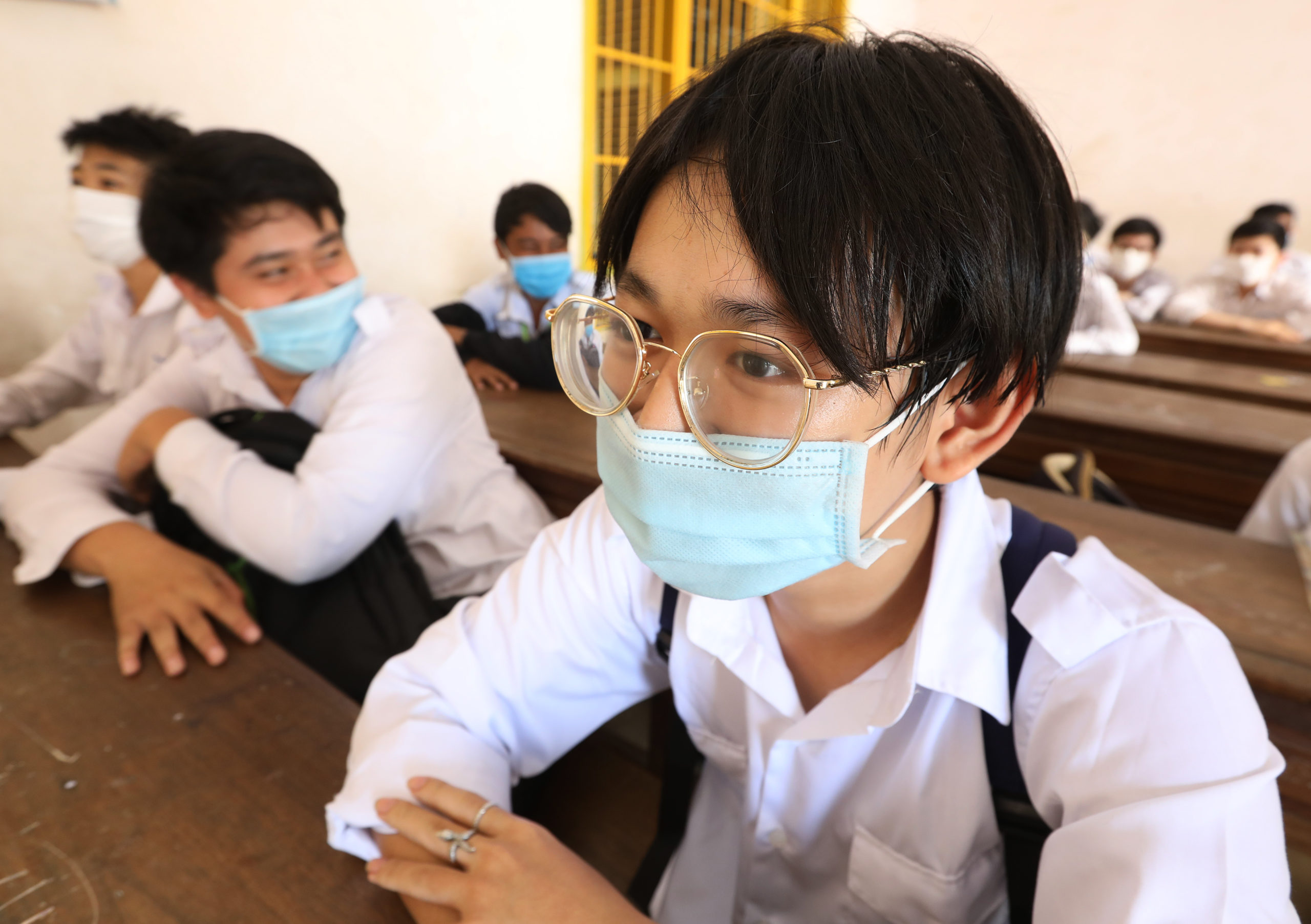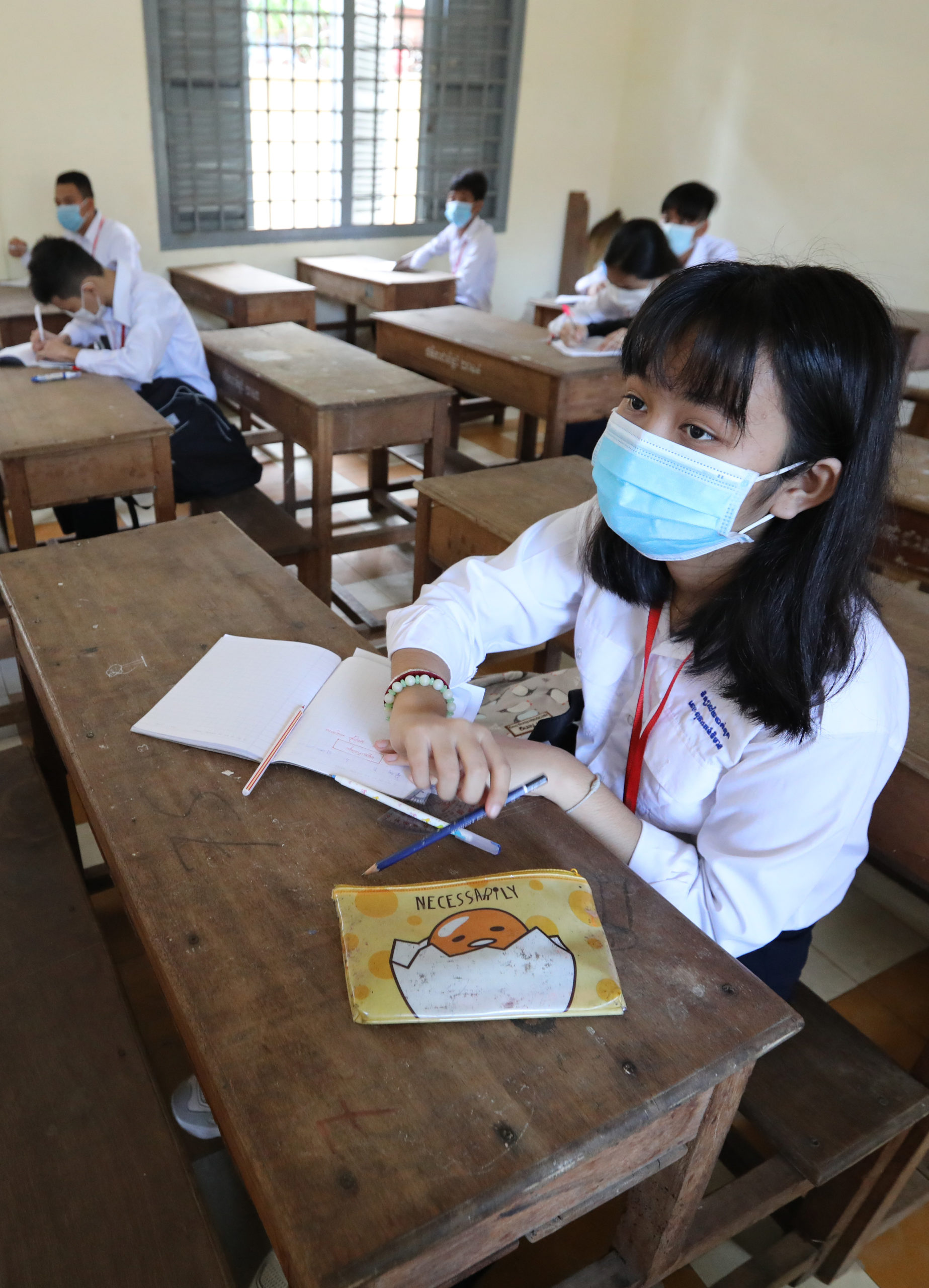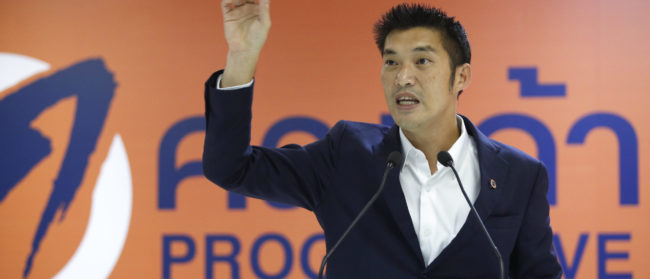The Covid-19 pandemic has brought about unprecedented disruptions to education systems around the world, and Cambodia is no exception. Schools closed throughout much of last year as part of the pandemic response. Millions of children in Least Developed Countries were left with little or no educational alternative.
As Cambodia is recovering from the pandemic, it is now the right moment for all of us to reflect and consider how we might make our education system more resilient to shocks, more responsive to the needs of young people, and more conducive for lifelong learning in a post-Covid-19 world.
This Sunday, 24 January, is the United Nations International Day of Education. It reminds us all that education is a basic human right, an essential public good and a public responsibility. Yet, this year, the celebration is muted as this fundamental right has been compromised. More precisely, Covid-19 has rendered many states unable to properly fulfill this social contract.
Many countries have had to impose strict social distancing measures, closing business, schools and other institutions as containment measures to stem the spread of the virus. In Cambodia, schools were closed down nationwide on 16 March for several months, and again throughout December. The good news – the very good news – is that community transmission was successfully prevented, but this has come at a heavy cost to children.
During the school closures, we have seen that most schools both public and private were largely unprepared. The shock pushed educators and students to adopt distance learning tools such as Zoom or Telegram in a rush. But without widespread access to the internet and online learning resources, most children were left with few options.
The Ministry of Education, Youth and Sports deserves credit for supplementing the gap by introducing distance learning apps, as well as televised and radio educational programmes to help students stay connected, and continue to learn.

But distance learning faces many obstacles in Cambodia. According to a government study published in September, over 80% of students reported having no television at home, no smartphone or tablet, and insufficient internet bandwidth. This was compounded by the fact that nearly three quarters of students, and almost as many teachers, had low digital literacy levels. A majority cited the high cost of internet connectivity as a key constraint.
Cambodia has been consistently improving its education, as measured by the Human Development Index, over the last two decades. However, according to a recent report published by UNDP, Cambodia could lose up to four years of human development due largely to the lost access to education throughout last year. This backsliding is unprecedented since the late 1970s.
Three conversations on the ‘new normal’ for education system in Cambodia
Covid-19 has brought under the spotlight a number of weaknesses of our education system that pre-date the pandemic, as well as opportunities to instigate reforms. To ‘build back better’, the following three conversations offer possible ways forward.
Conversation #1: Digitalising the concept of inclusive education
The current education disruption has amplified educational inequalities across regions and socio-economic classes. Even in urban settings, the digital gap between the rich and poor is obvious – not every student can afford a smartphone, a tablet or a computer device, or even an internet connection. The capability to afford these resources has been made worse by the current economic recession.
In light of this new challenge, digital inclusive education can create equitable learning opportunities that include marginalised and vulnerable children, such as those living with disabilities and those from ethnic minorities. In practical terms, connectivity and accessibility to the internet and digital devices will need to be a defining factor of inclusive education.
To offset the significant learning loss caused by Covid-19 school shutdowns, in the short term, maintaining stringent health and safety measures during school reopening is essential. In the medium to long term, policies to incentivise state and non-state actors to invest in improving digital literacy and online learning infrastructure – such as affordable high-speed internet, digital learning applications, and learning devices – will be essential for education in the ‘Digital Age’.

Conversation #2: Capitalising on ‘blended learning’
During school closures, education, from kindergarten to tertiary, served as a laboratory for the fast-tracking of distance learning. This real world experiment offers us two lessons. First, the pandemic has exposed the vulnerability of the traditional, classroom-based learning that was already losing its relevance in many parts of the world. Second, ‘pure’ distance learning is not yet an effective remedy either, at least here in Cambodia.
So, perhaps the combination of the two is the future then?
“Blended learning” is a mode of education that integrates online educational materials with traditional place-based classroom methods. With the right technology and integrated online ecosystem, this new hybrid model has proved to be more effective than just using a single approach as it would enable students to learn faster and allow personalisation of the learning experience.
In the aftermath of Covid-19, the global trend, including in Cambodia, will move closer in that direction as the online learning resources become more accessible, learning devices become more affordable, and digital literacy among students and teachers improves.
To expedite this, the Ministry of Education has recently established a digital learning centre and learning application to push for a stronger integration of these resources into the curriculum. In the short term, with distance feedback mechanisms, these high-quality video tutorials can supplement the classroom-based pedagogy for students to improve their learning outcomes.
The high level of disruption and uncertainty caused by the pandemic is calling for a breakthrough. Rather than learning by pure retention of facts and memory-based exams, learning by doing through project-based learning is vital
In the medium to long term, the Ministry may consider investing in developing a more sophisticated learning platform that is more engaging and interactive. For example, through an online dashboard, students can watch digestible video lessons, submit assignments, do quizzes, access relevant reading materials and review their performance. This way, students can track and learn at their own pace, anytime, anywhere and through any device. Together with measures to bring down the digital divide, a full-fledged ‘blended learning’ can materialise.
Imagine an ideal situation where a teacher, after explaining the key concepts of a maths lesson, asks her students to turn on their personal learning devices to navigate through the lessons in greater depth in a designated application and then take online quizzes to assess their learning outcomes. The teacher may then coordinate in person or remotely.
Conversation #3: Shifting towards practical project-based learning
The high level of disruption and uncertainty caused by the pandemic is calling for a breakthrough. Rather than learning by pure retention of facts and memory-based exams, learning by doing through project-based learning is vital.
Some may argue project-based learning is expensive and difficult to implement. This is not necessarily the case. It can always be tailored to specific local context, needs and resources.
Students in a primary school in Svay Rieng, for example, have been undertaking some project-based learning activities by growing their own vegetables and raising fish on the school premises. With technical assistance from UNDP Cambodia, the pilot is part of the complementary teachers’ manual for climate change and environmental education which is designed to improve life skills for primary school students.
Creative, project-based learning tools to evaluate student performance can include audio and video recordings, portfolios, podcasts, blogs, experiments, games, role playing, simulations, and tutorials. Project-based learning will also broaden the perspective of the curriculum, allowing students to connect the dots, for example, as to how mathematics is related to market economy and to other disciplines. This will in turn make education more interesting, engaging, and relevant to the real world.
These practical tools can equip students with the fundamental 21st century skills for the future of work, including language competency, critical thinking, the ability to collaborate, self-awareness, creativity, and other soft and hard skills which are highly sought after by employers.
You may agree or disagree with these suggestions. But the more we can test and pilot these solutions, the better we can learn what works in countries like Cambodia. That will help us build more resilient and more effective education solutions for all children.
A joyous International Day of Education to all!
Nick Beresford is the Resident Representative of UNDP Cambodia. Khoun Theara is a Policy Analyst – Social and Economic Affairs for UNDP Cambodia.


